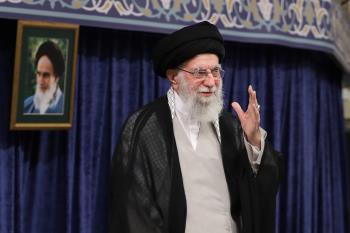Alwaght- Millions of Shiite Muslim pilgrims converged on the holy city of Karbala, Iraq on Saturday to commemorate Ashura, which falls on the 10th of Muharram in the Islamic calendar and marks the martyrdom of Imam Hussein, Prophet Mohammad’s grandson.
Despite the rampant acts of terrorism and attacks across the country, in addition to the ongoing fight against ISIS terrorists who have invaded parts of Iraq, the annual commemorations remained largely safe.
As per usual, Iraqi security forces stepped up measures ahead of the rituals to deter ISIS attacks, which have previously marred the commemorations.
Tens of thousands of security forces have been deployed across Iraq.
"Our forces have set up a security plan that includes more than 20,000 members of the security forces," Qais Khalaf Rahima, a senior army commander, declared in a news conference on Friday.
The Karbala police chief said the measures involved three security rings around the holy city, traffic ban in the city centre which took force three days earlier, and special explosives detection equipment.
As the Karbala province borders the ISIS-controlled Anbar region, these procedures came as part of intensive efforts to reduce the risk of ISIS attacks and prevent bloodshed during the pilgrimage.
This year’s commemorations were deemed successful as operations to protect mourners were in full swing.
Not long ago, however, the Hajj season was marred by two tragedies that could have been avoided and were entirely a result of security mismanagement.
Unlike Iraq, where the army and popular defence forces are engaged in a counter-offensive against an ISIS expansion bid as well as persistent terrorist attacks against civilians, the Saudi regime enjoys internal security.
Saudi security forces are well-equipped and face the tasks of protecting pilgrims maintaining order during the annual pilgrimage, one of the five pillars of Islam.
Despite the clear and attainable goals, this year marked the deadliest year in the history of Hajj.
Just a few weeks before the Mina catastrophe, a crane collapsed at Mecca’s Grand Mosque killing 109 people. Riyadh attempted to dismiss the incident as irrelevant to its competence in organizing the Hajj season.
When the tragedy in Mina occurred, the Saudis tried to disclaim responsibility.
An article published by the Atlantic, titled: ‘The Hajj Stampede: Why Do Crowds Run?’ shed light on the controversial issue.
“Blocked exits, overcrowded spaces, and insufficient security and emergency services all exacerbate the dangers. Event organizers, managers, governments, promoters, designers, and other entities defend themselves vigorously in the aftermath of these disasters.”
The latest Associated Press tally showed that at least 2,177 pilgrims were killed in the disaster including 465 Iranians while many more remain unaccounted for. Tehran, however announced that tolls published by media are deliberately underestimated, saying that a total of 7,000 people have died under Saudi management of the Muslim pilgrimage.
"The hosting Saudi Arabia is the first responsible body for the death of 7,000 Muslims; we expected to see a single voice of objection by the Islamic world; however, no other voice was heard than that of the Islamic Republic of Iran, and even governments whose citizens had died in the event, averted their heads to the issue," Iran's Supreme Leader Sayyied Ali Khamenei said.
Against the odds, it is clear that Iraq, in spite of political upheavals, insecurity, and terrorist attacks has been able to maintain the status quo, a minimum requirement for security for the millions who converge on Karbala during Ashura and Arbaeen, therefore succeeding where the Saudis have failed considerably.


























